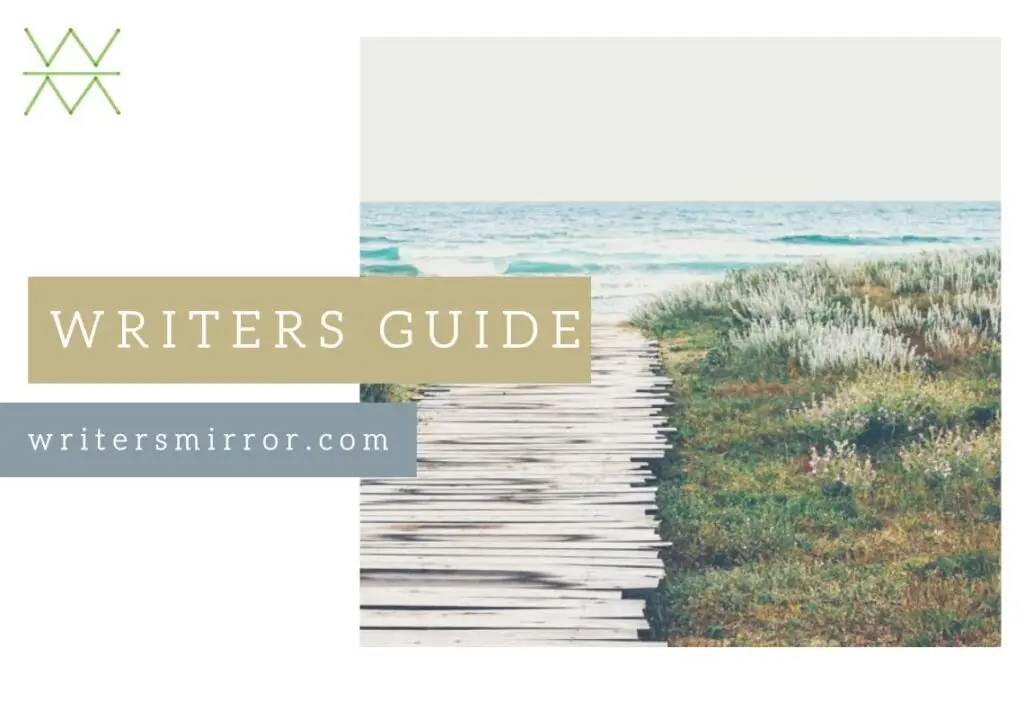Introduction to Writers Guide
Understanding the Basics of Writing
Writing is a fundamental skill that transcends professions and personal interests. At its core, writing is about communicating ideas clearly and effectively. Whether you’re crafting a novel, a business proposal, or a personal blog, understanding the basics of writing is crucial.
Why You Should Start Writing Today
Writing can be both a therapeutic and practical endeavor. It allows you to express your thoughts, share your experiences, and connect with others. Moreover, writing can improve your critical thinking and communication skills, making it an invaluable tool in both personal and professional contexts.
The Importance of a Writer’s Guide
A writer’s guide serves as a roadmap to navigate the often challenging journey of writing. It provides structure, tips, and insights that can help both novice and seasoned writers improve their craft. With a comprehensive guide, you can learn the techniques and strategies necessary to elevate your writing.
Writing Techniques and Styles
Exploring Different Writing Styles
Writing styles vary widely, from the formal tone of academic writing to the conversational style of blogs. Understanding these differences and experimenting with various styles can help you find the best fit for your voice and audience.
Techniques for Effective Storytelling
Effective storytelling is an art. It involves creating a compelling narrative that captures the reader’s attention and keeps them engaged. Techniques such as building suspense, developing relatable characters, and crafting intriguing plots are essential for good storytelling.
How to Develop Your Unique Writing Voice
Your writing voice is your unique way of expressing ideas. It’s shaped by your choice of words, tone, and rhythm. Developing your voice involves a lot of practice and reflection, allowing your personality and perspective to shine through your writing.
Crafting Characters and Plots
Creating Memorable Characters
Memorable characters are the heart of any good story. They should be well-rounded, with distinct personalities, backgrounds, and motivations. Techniques like character sketches and backstory development can help in creating characters that resonate with readers.
Building Engaging Plots
A strong plot is essential for keeping readers invested in your story. It should have a clear structure, with a beginning, middle, and end, and include elements of conflict, climax, and resolution. Plotting tools and techniques can assist in crafting compelling narratives.
Tips for Writing Dialogue
Dialogue can bring characters to life and advance the plot. Good dialogue should sound natural and reflect the speaker’s voice and personality. It’s important to balance dialogue with action and description to maintain the story’s pace and flow.
Writing Tools and Resources
Essential Tools for Writers
Various tools can aid in the writing process, from word processors and grammar checkers to organizational software. Understanding which tools are available and how to use them can streamline your writing workflow and enhance productivity.
Online Resources for Aspiring Writers
The internet is a treasure trove of resources for writers. Websites, blogs, and online courses offer valuable tips, tutorials, and inspiration. Utilizing these resources can provide continuous learning opportunities and support.
Must-Read Books for Writers
There are numerous books written by experienced authors that offer insights into the craft of writing. From guides on grammar and style to books on storytelling and character development, these resources can be invaluable to any writer’s library.
Overcoming Writer’s Block
Strategies to Overcome Writer’s Block
Writer’s block can be a major hurdle. Strategies such as free writing, changing your environment, and setting small, achievable goals can help break through creative barriers.
Keeping the Creative Juices Flowing
Staying creative requires constant inspiration. Engaging in activities like reading, exploring nature, or pursuing hobbies can rejuvenate your mind and keep your creativity alive.
How to Stay Motivated as a Writer
Writing can be a long and often solitary process. Setting clear goals, celebrating small achievements, and maintaining a routine can help you stay motivated and committed to your writing journey.
Editing and Revising Your Work
Steps for Self-Editing
Self-editing is a critical step in the writing process. It involves reviewing your work for clarity, coherence, and consistency. Techniques like reading aloud, taking breaks between drafts, and using editing checklists can improve your self-editing skills.
The Importance of Revising
Revising goes beyond basic editing. It’s about rethinking and restructuring your work to enhance its overall quality. This process can involve significant changes to plot, character development, and pacing to ensure your story is the best it can be.
Tips for Working with an Editor
An editor can provide an objective perspective on your work. Building a good relationship with your editor, being open to feedback, and understanding the editing process can make this collaboration fruitful and enhance your manuscript.
Publishing Your Work
Traditional vs. Self-Publishing
Choosing between traditional and self-publishing is a significant decision. Traditional publishing offers credibility and widespread distribution, while self-publishing provides control and higher profit margins. Understanding the pros and cons of each can help you make an informed choice.
Steps to Get Your Book Published
Publishing a book involves several steps, from writing a query letter to submitting your manuscript to agents or publishers. Familiarizing yourself with this process can increase your chances of success in the competitive publishing industry.
Understanding the Publishing Industry
The publishing industry is complex and constantly evolving. Keeping up-to-date with industry trends, understanding contracts and rights, and networking with industry professionals can provide valuable insights and opportunities.
Marketing and Promoting Your Writing
Building an Author Platform
An author platform is your presence and reach as a writer. Building a platform involves creating a website, engaging with readers on social media, and establishing a consistent brand. A strong platform can significantly boost your visibility and readership.
Effective Book Marketing Strategies
Marketing your book requires a strategic approach. Techniques such as book tours, promotional giveaways, and leveraging reviews can help you reach a wider audience and drive sales.
Using Social Media to Promote Your Work
Social media is a powerful tool for promotion. Platforms like Twitter, Facebook, and Instagram allow you to connect directly with readers, share updates, and build a community around your work.
Writing for Different Genres
Tips for Writing Fiction
Fiction writing involves creating imaginative and engaging stories. Understanding the conventions of different genres, developing believable characters, and crafting compelling plots are key to successful fiction writing.
How to Write Non-Fiction Effectively
Non-fiction writing focuses on factual and informative content. Techniques such as thorough research, clear organization, and a strong narrative voice are essential for creating engaging and authoritative non-fiction works.
Breaking into the World of Poetry
Poetry is a unique and expressive form of writing. Understanding poetic forms, experimenting with language and rhythm, and drawing inspiration from your experiences can help you craft impactful poetry.
Advanced Writing Techniques
Mastering the Art of Subtext
Subtext adds depth to your writing by implying meaning beneath the surface. Mastering subtext involves using dialogue, description, and symbolism to convey underlying themes and emotions.
Writing Complex and Layered Characters
Complex characters have depth and nuance, making them more relatable and interesting. Techniques such as developing detailed backstories, exploring internal conflicts, and showing character growth can create layered characters.
Enhancing Your Narrative with Symbolism
Symbolism adds richness to your narrative by using symbols to represent larger ideas. Thoughtfully incorporating symbolism can enhance the thematic depth of your story and engage readers on a deeper level.
Writing as a Career
Navigating the Writing Industry
The writing industry offers various career paths, from novel writing to content creation. Understanding the landscape, building a network, and continuously improving your skills can help you navigate this competitive field.
How to Make a Living as a Writer
Making a living as a writer requires diversifying your income streams. This can include freelance writing, teaching, speaking engagements, and leveraging your author platform for various opportunities.
Freelance Writing Opportunities
Freelance writing offers flexibility and a range of opportunities. Building a portfolio, pitching to publications, and networking with clients can help you establish a successful freelance career.
Writing Communities and Networking
Joining Writing Groups and Workshops
Writing groups and workshops provide support, feedback, and camaraderie. Participating in these communities can help you improve your writing, stay motivated, and connect with fellow writers.
Networking Tips for Writers
Networking is crucial for building relationships and finding opportunities. Attending writing conferences, engaging in online forums, and reaching out to industry professionals can expand your network and open doors.
The Benefits of Writing Conferences
Writing conferences offer valuable learning and networking opportunities. They provide access to industry experts, workshops, and panel discussions that can enhance your writing skills and industry knowledge.
This comprehensive guide serves as a valuable resource for writers at all stages, offering practical advice, techniques, and insights to help you succeed in your writing journey.
Frequently Asked Question On Writers Guide
How to Create the Plot of a Story: The Ultimate Guide for Writers
Creating the plot of a story involves several key steps: starting with a strong premise, developing characters, establishing the main conflict, and outlining the major plot points. Use techniques like the three-act structure or the hero’s journey to organize your plot effectively. Continuously refine and revise your plot to ensure it remains engaging and coherent.
How to Tell a Story: An Ancient Guide to the Art of Storytelling for Writers and Readers
To tell a story effectively, focus on capturing your audience’s attention from the beginning. Use vivid descriptions, relatable characters, and a clear narrative arc. Incorporate ancient storytelling techniques such as using myths, symbols, and moral lessons to add depth and resonance to your story. Practice and refine your storytelling skills to become a captivating narrator.
How Does Using a Style Guide Benefit Technical Writers?
Using a style guide benefits technical writers by providing consistency and clarity across documents. It ensures uniformity in terminology, formatting, and language usage, making the content easier to read and understand. A style guide also helps maintain a professional tone and reduces the likelihood of errors.
How Does Using a Style Guide Help Technical Writers Work Faster?
A style guide helps technical writers work faster by reducing decision fatigue and streamlining the writing process. Writers can refer to the guide for quick answers to common questions, allowing them to focus more on content creation rather than formatting details. This consistency also speeds up the review and editing process.
Writers Who Love Too Much Reading Guide
Writers who love reading often draw inspiration and techniques from their favorite books. A reading guide for such writers can include recommended readings across genres, analysis of writing styles, and exercises to integrate learned techniques into their own writing.
Writers Who Love Too Much Reading Guide Answers
A reading guide answers common questions such as how to analyze a text, how to apply literary techniques, and how to balance reading and writing time. It can also provide summaries and critiques of influential books to deepen writers’ understanding of different writing styles.
Guide for Writers – Page 59 – When Is the Perfect Time to Use a Dehumidifier
The perfect time to use a dehumidifier is when the humidity levels in your writing space become uncomfortable or harmful to your materials. Ideal humidity levels are between 30-50%. Using a dehumidifier can help protect your manuscripts and equipment from moisture damage.
What Are the 7 Rules of Writing?
- Write every day.
- Read regularly.
- Show, don’t tell.
- Edit ruthlessly.
- Seek feedback.
- Develop your unique voice.
- Persevere through challenges.
How Should a Beginner Start Writing?
A beginner should start writing by setting aside dedicated time each day to practice. Begin with short pieces, such as journal entries or flash fiction, and gradually work up to more complex projects. Read extensively, join writing groups, and seek feedback to improve.
How to Start to Be a Writer?
To start being a writer, commit to a regular writing schedule. Choose a genre or style that interests you and start creating content. Study writing techniques, read extensively, and don’t be afraid to make mistakes. Writing is a skill that improves with practice and dedication.
How Do Writers Get Ideas?
Writers get ideas from various sources, including personal experiences, dreams, reading, and observing the world around them. Keeping a journal, brainstorming, and asking “what if” questions can also spark new ideas. Inspiration can come from anywhere, so stay curious and open-minded.
What Are the 5 Basics of Writing?
- Clear and concise language.
- Proper grammar and punctuation.
- Strong structure and organization.
- Engaging and relevant content.
- Consistent tone and style.
What Is the Golden Rule of Writing?
The golden rule of writing is to write with clarity and purpose. Ensure your writing communicates your message effectively and engages your audience. Always prioritize clear expression over stylistic flourishes.
What Are the 10 Rules of Creative Writing?
- Write every day.
- Show, don’t tell.
- Create vivid, relatable characters.
- Use strong, active verbs.
- Read widely and often.
- Edit and revise thoroughly.
- Embrace criticism and feedback.
- Experiment with different styles and genres.
- Develop your unique voice.
- Stay persistent and patient.
What Are the 4 Basics of Writing?
- Clarity: Make your writing easy to understand.
- Coherence: Ensure your ideas flow logically.
- Consistency: Maintain a uniform style and tone.
- Correctness: Use proper grammar, punctuation, and spelling.
What Are the 6 Keys of Writing?
- Purpose: Know why you’re writing.
- Audience: Understand who you’re writing for.
- Content: Ensure your message is clear and engaging.
- Structure: Organize your ideas logically.
- Style: Develop a unique and appropriate voice.
- Revision: Edit and refine your work.
What Are the 5 Steps in Writing?
- Prewriting: Brainstorm and plan your content.
- Drafting: Write the initial version of your text.
- Revising: Improve content and structure.
- Editing: Correct grammar, punctuation, and spelling.
- Publishing: Share your final piece with your audience.




